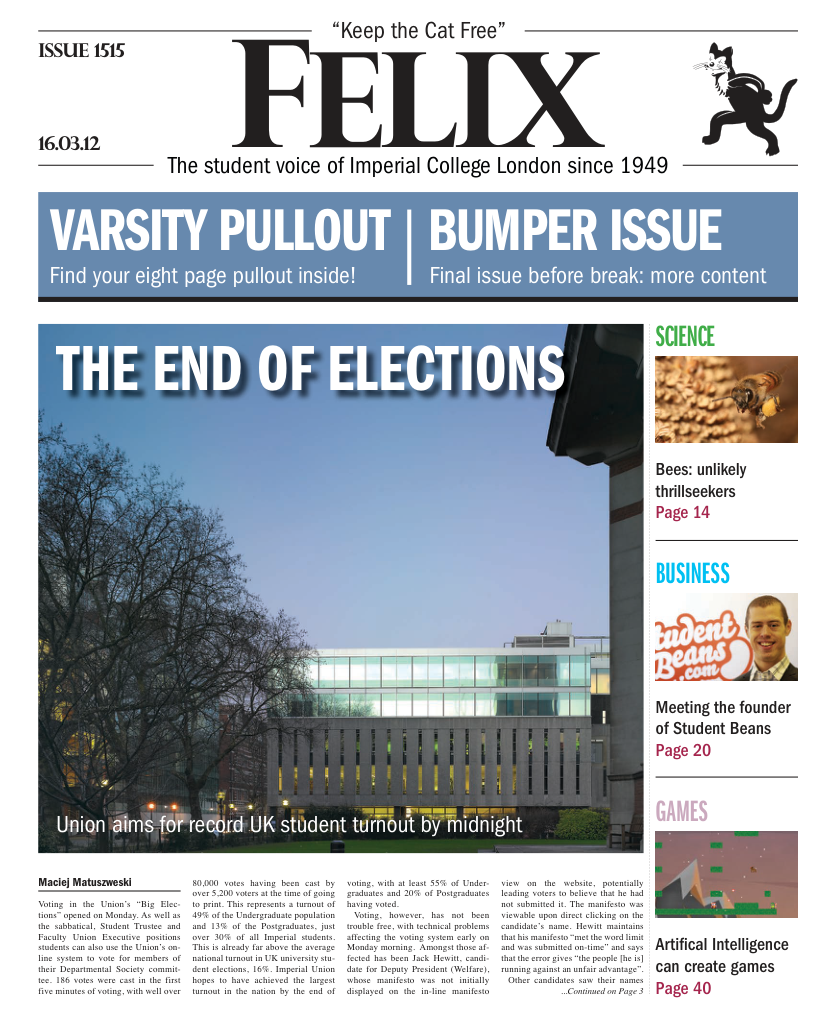Rhythm is the Ritalin
Íñigo Martínez de Rituerto on the intimate relationship between rhythm and sound

Why is there rhythm in music? To some, this question may seem utterly superfluous, but is arrhythmic music really so unfathomable? The heartbeat is itself a periodic throb, as is breathing. It appears that rhythm is an integral part of vitality and perhaps this is why we are so attracted to it.
The reassurance of repetition acts as a psychic pillow, letting us know that our predictions of the world are congruous. In fact, some theories on the nature of intelligence base themselves on the reinforcement of predictions made while understanding previous experiences. But what happens when these predictions are challenged? If you met a person with ears for eyes, you’d certainly be taken aback; that’s just not how the world is. Then again, if our ideas were never challenged we would learn nothing new and life would be a mundane thing.
There’s nothing like a steady beat. It cradles you beyond boredom, tucking you neatly in your comfort zone, knowing that the next three minutes are going to be exactly the same. No change. No worries. Then there’s jazz. As feared by Vince Noir as revered by Howard Moon. Every second, a breath suspended. A veritable vertigo of anticipation, darting between surprises and unfamiliar instances, each moment a shadow of the next.
In dance, rhythm entrances the body, allowing the mind to wander elsewhere. A cathartic release as one’s earthly ties are made sublime. For the same reasons do we prefer to dance at night in darkened rooms beneath unnatural lights. It is the farthest we can get from the quotidian, an exit from the dragging day to day. Breaking the cycle of daily obligation with another of a more tenuous nature can make the former more bearable. Hence the sacrament of Friday nights.
There is no reason for music to invariably alternate between verse and chorus. Such a monotonous structure is a poor man’s kaleidoscope, recycling a simple pattern ad nauseam. Is it an attempt to remind you what it sounded like – massaging your ears once more in case you forgot how it felt? Or is it an attempt to recycle the past? Why do what has already been done?
Rhythm is the reappearance of sound in particular patterns. But couldn’t playing a sound once be enough? Once it has become, why summon back its memory? It remains a constant affirmation of its non-vanishment, a reminder of something that cannot last forever.
Surely there is a better representation of sound in its subordinance to the time domain – an ever fleeting object continually disappearing into the past. Something to be left as a memory and perhaps recall it in a synpatic disturbance. Or does the recollection serve to keep us in a single moment, conveying something greater than time would allow?
Our memory can hold a moment forever, suspending everything, all at once. We can experience a tremendous amount in a single instant and condense the greatest of spaces into the finest point. Time is too precious to linger on.









